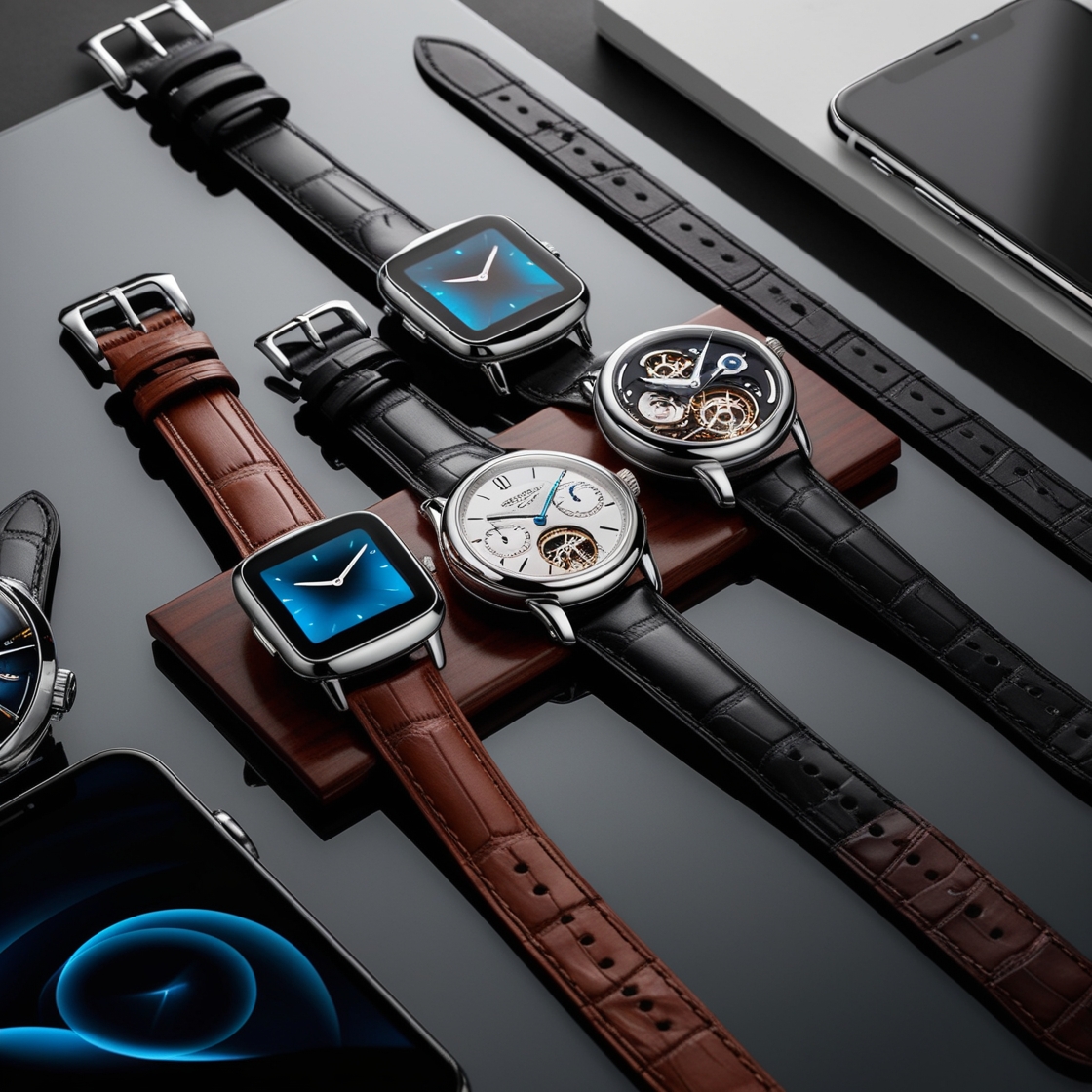Introduction
When it comes to wristwear, the choice between smart watches and traditional timepieces sparks lively debates. With advancements in technology and an enduring appreciation for craftsmanship, finding the perfect fit in 2024 means understanding your needs and lifestyle.
The Evolving World of Watches
From sundials to sleek digital interfaces, watches have seen a massive evolution. Today, they’re not just for telling time—they’re tools of convenience, health, and fashion.
Why Choosing the Right Watch Matters
A watch isn’t merely an accessory; it’s a reflection of personality and utility. Whether you lean toward innovation or cherish timeless elegance, your choice speaks volumes.
Features and Functionality
What Makes Smart Watches Stand Out?
Smart watches go beyond time-telling. They offer notifications, GPS, fitness tracking, and even contactless payments. They’re essentially a mini smartphone on your wrist.
The Enduring Appeal of Traditional Timepieces
Traditional watches focus on precision and craftsmanship. They embody simplicity and sophistication, often becoming family heirlooms.
Style and Aesthetics
The Modern Tech Look of Smart Watches
With sleek, customizable designs, smart watches cater to modern minimalism. Changeable bands and digital watch faces let you match any outfit or mood.
The Classic Elegance of Traditional Watches
From luxurious leather straps to intricate dials, traditional watches are timeless pieces of art. Their aesthetic often complements formal and vintage styles.
Practicality and Everyday Use
Smart Watches as Lifestyle Companions
Smart watches are perfect for multitaskers. Need to reply to a text during a jog? Or monitor your heart rate at the gym? They’ve got you covered.
Reliability and Simplicity of Analog Watches
For those who prefer no-fuss functionality, traditional watches are reliable and easy to maintain. They also eliminate the constant charging hassle.
Technology Integration
Health and Fitness Tracking with Smart Watches
With features like step counting, sleep tracking, and ECG monitoring, smart watches are fitness enthusiasts’ best friends.
Durability and Longevity of Mechanical Watches
Traditional watches are built to last. With proper care, they can endure decades without losing their charm or functionality.
Battery Life and Maintenance
The Short Battery Life of Smart Watches
One downside of smart watches is frequent charging. Most require daily or bi-daily recharging, limiting convenience during travels.
Low Maintenance Needs of Traditional Timepieces
Traditional watches, especially mechanical ones, can run for years without battery replacements, needing only occasional servicing.
Investment Value
Resale Value of Smart Watches
Smart watches lose value quickly as newer models launch. However, high-end editions like luxury smart watches may retain better resale value.
Traditional Watches as Timeless Investments
Luxury watches from brands like Rolex or Patek Philippe often appreciate in value, making them coveted collectibles.
Sustainability
Eco-Friendly Options in Smart Watches
Brands are focusing on sustainable materials and energy-efficient designs. However, the electronic waste from outdated models is a concern.
Longevity and Sustainability of Traditional Watches
With a lifespan that can span generations, traditional watches have minimal environmental impact, especially mechanical models.
Choosing Based on Lifestyle
Tech Enthusiasts and Smart Watches
For tech lovers, smart watches offer unmatched functionality. They’re perfect for staying connected and tracking performance metrics.
Heritage Lovers and Traditional Watches
If you appreciate history and craftsmanship, traditional watches are ideal. They bring a sense of nostalgia and pride to the wrist.
The Future of Watches in 2024
Innovations in Smart Watch Technology
Expect advancements like extended battery life, AI-driven features, and enhanced health tracking capabilities in the latest models.
Preserving the Legacy of Traditional Watches
Traditional watchmakers are blending tradition with modernity by introducing hybrid models, ensuring they remain relevant in the digital age.
Conclusion
The choice between smart watches and traditional timepieces depends on personal preferences. While smart watches cater to tech-savvy individuals, traditional watches remain symbols of timeless elegance. In 2024, finding the perfect fit means balancing technology and tradition to suit your style and needs.
FAQs
1. Are smart watches better than traditional watches for health tracking?
Yes, smart watches excel in health tracking, offering features like heart rate monitoring, sleep analysis, and fitness tracking.
2. Can traditional watches be considered sustainable?
Absolutely. With their long lifespan and minimal electronic components, traditional watches are often more environmentally friendly.
3. What is the average lifespan of a smart watch compared to a traditional watch?
Smart watches last 3–5 years on average, while traditional watches can last decades with proper care.
4. Do traditional watches hold their value better over time?
Luxury traditional watches often appreciate in value, unlike smart watches that depreciate as new models are released.
5. Are there hybrid options combining smart and traditional features?
Yes, hybrid watches offer a blend of analog aesthetics and digital functionalities, providing the best of both worlds.
